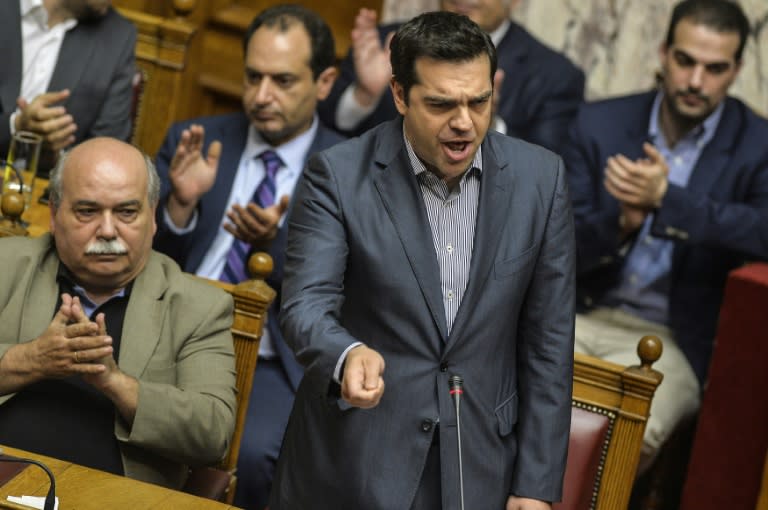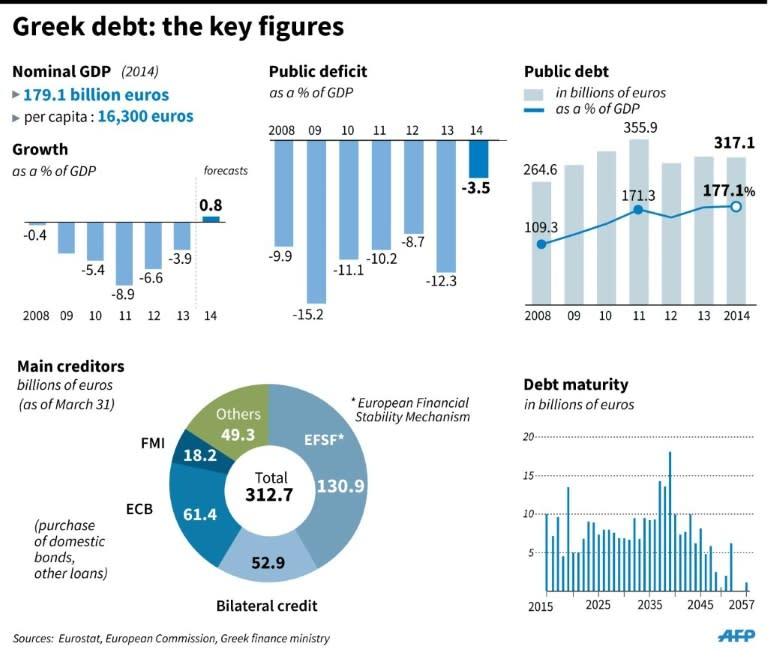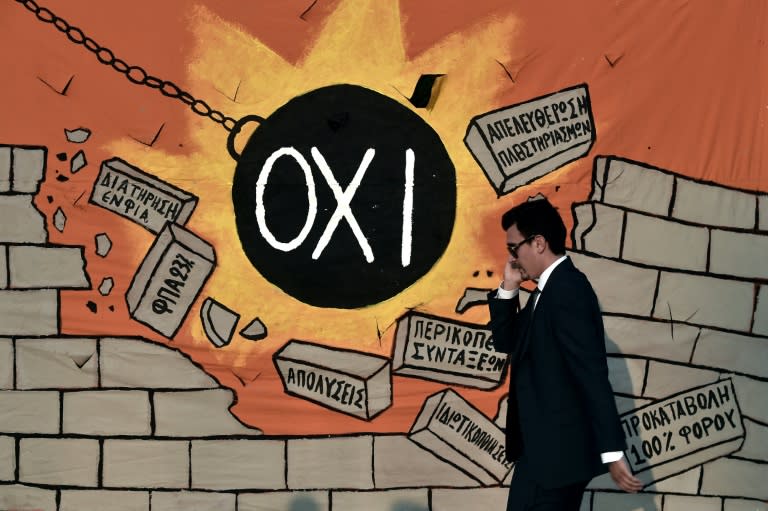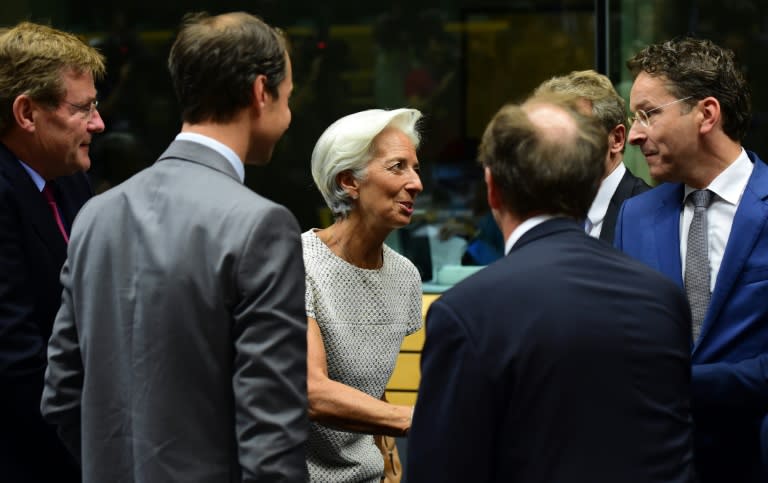Greece faces 'difficult' talks to stay in euro
Eurozone finance chiefs warned that last-ditch talks Saturday on a bailout deal to stop Greece crashing out of the euro would be "extremely difficult", blaming Athens for a collapse of trust. Hardline Germany led a chorus of scepticism as Eurogroup ministers prepared to give a verdict on leftist Greek Prime Minister Alexis Tsipras's new reform plan for a third rescue package worth more than 80 billion euros ($89 billion). But France and some smaller nations said there was a good basis for negotiations on the new proposals of pension cuts and tax hikes, which were approved by the Greek parliament in the early hours of Saturday. "We will have extremely difficult negotiations," German Finance Minister Wolfgang Schaeuble told reporters on his way into the talks in Brussels. "In the last months hope has been destroyed in an incredible way, even up to just a few hours ago. Definitely we cannot trust promises," he added. A European source said the German finance ministry has even drawn up an "internal paper" for Greece to leave the eurozone for five years if it fails to improve its bailout proposals, but added it was not distributed in Brussels. Eurogroup chief Jeroen Dijsselbloem insisted on the need to build trust after six months of tortuous debt deal negotiations and a sudden referendum in which Greeks overwhelmingly rejected creditors' bailout terms. "There is a major issue of trust -- can the Greek government be trusted to do what they are promising in coming weeks, months and years?" said Dijsselbloem, who is also the Dutch finance minister. However Finance Minister Michel Sapin of France, which has been Greece's biggest supporter in efforts to avoid a "Grexit", said he hoped the talks would "go as far as possible to find a deal." A source close to the negotiations said the "climate is not easy" and Greek Finance Minister Euclid Tsakalotos was is in contact with Athens to see how to restore confidence in Greece. The finance ministers' meeting is meant to reach a final verdict on whether the Greek proposals offer a basis for negotiations on a new bailout ahead of a make-or-break EU summit on Sunday. - 'Armageddon' - Tsipras won the backing of 251 out of 300 deputies in the Greek parliament for his reform plans, even though they are similar to the ones that Greeks rejected in the referendum. Greece's creditors fear it will not keep its promises after two previous bailouts worth 240 billion euros merely added to a debt mountain now worth nearly 180 percent of the country's GDP. Despite roundly voting 'No' last Sunday to accepting tough austerity terms for bailout funds, Greeks are alarmed at capital controls that have closed banks and rationed cash at ATMs for nearly two weeks. Queueing Saturday at a cash machine in Athens, Vassilis Papoutsoglou, 52, said: "We still don't know what will happen tomorrow. Can we expect something better, or is it Armageddon?" The Greek government hoped the vote would give it a mandate to continue the talks with the creditors -- but it also revealed the depth of opposition to fresh austerity. Three senior government figures were among 10 MPs who abstained or voted against, and several others from the ruling leftist Syriza party stayed away, prompting commentators to predict a government shake-up. Tsipras told parliament the plan was "marginally better" than the proposals put forward by the creditors last month and that Greeks would "succeed not only in staying in Europe but in living as equal peers with dignity and pride". - 50-50 chance - Greece's creditors appeared split at the Brussels talks, with some more hopeful voices. IMF chief Christine Lagarde -- who has echoed calls by Athens and the United States for part of Greece's debt to be eliminated -- said she hoped for "a lot of progress". Greece became the first developed economy to default on a huge payment to the International Monetary Fund on June 30. EU economic affairs commissioner Pierre Moscovici said that "rapidly" putting reforms in action was "key to getting a programme, to be able to tackle the debt." EU sources who asked not to be named put the probability of a deal at no more than 50-50. If eventually approved, Greece could receive between 74 billion and 82 billion euros from its EU-IMF creditors, including 16 billion euros from the IMF that is part of an old programme due to expire next March, sources said. EU President Donald Tusk has said the 28-nation European summit he will host in Brussels on Sunday is a "last chance" for a deal. Even if that happens, at least eight parliaments will have to weigh in on a final accord, with Germany's Bundestag having to vote twice.






